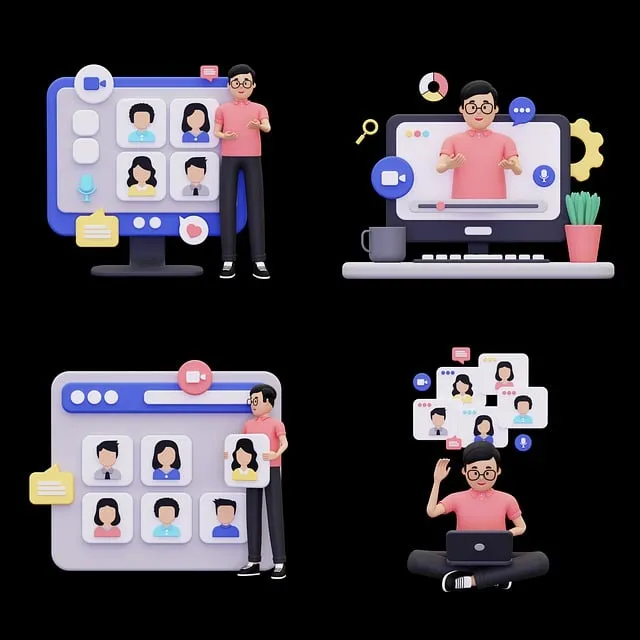In today's digital age, music industry executives face a delicate balance between leveraging online tools for marketing insights and protecting proprietary strategies. They employ advanced privacy tools like VPNs, ad-blockers, and Tor browsers to achieve a Private Internet Experience, enabling discreet research on competitors and trend exploration while maintaining the integrity of their marketing strategies. This approach is crucial for gathering valuable insights without exposing sensitive company or client data, ensuring the success of artists' careers.
In today’s digital age, marketing managers face a delicate balance between staying informed and protecting sensitive strategies. Stealthy web surfing becomes an essential skill, especially for those navigating the competitive music industry. This article explores the need for discretion while researching online, focusing on tools and techniques to ensure a private Internet experience. We delve into real-world applications, particularly for music executives, and conclude with ethical considerations, offering best practices for responsible and effective stealthy browsing in marketing.
- Understanding the Need for Stealthy Browsing: Protecting Sensitive Marketing Strategies in the Digital Age
- The Impact on Music Industry Executives: Navigating Online Research Discreetly
- Tools and Techniques for a Private Internet Experience
- Ethical Considerations and Best Practices for Stealthy Web Surfing in Marketing
Understanding the Need for Stealthy Browsing: Protecting Sensitive Marketing Strategies in the Digital Age

In today’s digital age, marketing managers often face a delicate balance between leveraging powerful online tools and safeguarding sensitive strategies. With vast amounts of information readily available on the web, the risk of competitor intelligence leaks becomes a significant concern. Stealthy web surfing is an essential skill for marketing managers to master, ensuring they can gather insights while maintaining the privacy and security of their company’s intellectual property. It’s akin to navigating a labyrinthine digital landscape without leaving tracks, allowing executives to explore potential strategies and stay ahead in the market without exposing their cards.
For marketing professionals, especially those in competitive industries like the music sector, embracing a private Internet experience is crucial. Similar to how music industry executives might seek a closed-door session to discuss album releases, marketing managers require similar discretion when researching competitors’ moves or exploring new trends. This clandestine approach ensures that sensitive marketing strategies remain intact, fostering an environment of strategic secrecy and enhancing the overall effectiveness of their digital campaigns.
The Impact on Music Industry Executives: Navigating Online Research Discreetly

In today’s digital era, music industry executives often find themselves navigating a complex web of online research while balancing the need for discretion. As marketing managers, they must explore various platforms and sources to gather insights, identify trends, and stay ahead of the competition, all while maintaining a private Internet experience. This delicate balance is crucial, as their research can shape strategic decisions that impact artists’ careers and label strategies.
Stealthy web surfing allows these executives to conduct sensitive research without leaving digital footprints that could compromise proprietary information. By employing advanced privacy tools and staying vigilant about online behavior, they can access a wealth of data, from market trends to consumer preferences, shaping effective marketing campaigns. This private Internet experience is not just a privilege but a necessity in an industry where every move can make or break a musician’s success.
Tools and Techniques for a Private Internet Experience

In today’s digital age, Marketing Managers, especially those in the music industry, must balance their professional duties with a desire for privacy online. Achieving a private internet experience becomes paramount to protect sensitive company and client data from prying eyes. Fortunately, numerous tools and techniques are at their disposal. VPN (Virtual Private Network) services are a popular choice; they encrypt internet traffic, masking IP addresses and ensuring anonymous browsing. Ad-blockers and tracker blockers further enhance privacy by preventing unwanted tracking pixels and advertisements from collecting user data.
For an extra layer of security, advanced users employ Tor browsers, which route internet connections through multiple encrypted nodes, making it significantly harder to trace online activities. Additionally, using secure, end-to-end encrypted messaging platforms ensures confidential communication with clients and colleagues. By employing these tools and techniques, Marketing Managers in the music industry can enjoy a more private internet experience while navigating the digital landscape effectively.
Ethical Considerations and Best Practices for Stealthy Web Surfing in Marketing

In the realm of marketing, where data and insights are currency, Stealthy Web Surfing offers a unique advantage. However, it’s crucial to approach this practice with ethical considerations in mind. Marketing managers must respect the privacy of individuals and organizations they target, ensuring that their surfing activities do not infringe on personal or proprietary information. This involves adhering to legal boundaries and industry best practices, such as obtaining consent for data collection and using anonymized data where possible.
For executives navigating the digital landscape, especially in industries like the music business, a Private Internet Experience is essential. By employing stealthy techniques responsibly, marketers can uncover valuable insights without compromising the integrity of their professional relationships or the privacy of their peers. Best practices include utilizing secure, private browsing tools, remaining anonymous on public forums, and ensuring that any data gathered is used for legitimate marketing purposes only.
Marketing managers, especially those working with sensitive strategies, can greatly benefit from adopting stealthy web surfing techniques. By understanding the importance of protecting their digital footprint and employing tools designed for a private internet experience, they can ensure confidential research, particularly when navigating industries like music. This practice not only safeguards competitive marketing advantages but also upholds ethical standards, allowing executives to maintain a discreet online presence while staying ahead in today’s digital market.
